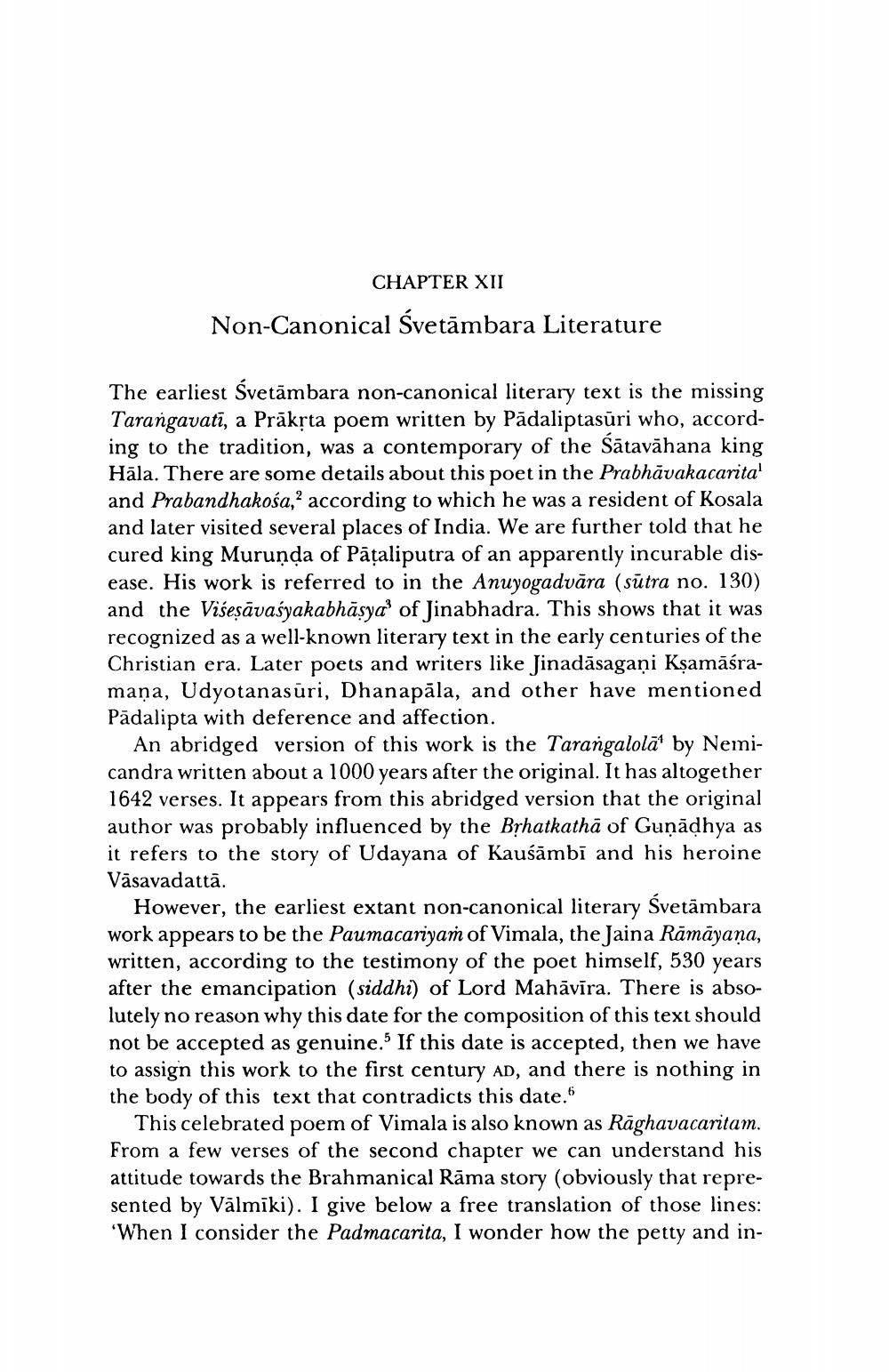________________
CHAPTER XII
Non-Canonical Svetāmbara Literature
The earliest Śvetāmbara non-canonical literary text is the missing Tarangavatī, a Prāksta poem written by Pādaliptasūri who, according to the tradition, was a contemporary of the Sātavāhana king Hāla. There are some details about this poet in the Prabhāvakacarita' and Prabandhakośa, according to which he was a resident of Kosala and later visited several places of India. We are further told that he cured king Murunda of Pāțaliputra of an apparently incurable disease. His work is referred to in the Anuyogadvāra (sūtra no. 130) and the Viseșāvasyakabhāsya' of Jinabhadra. This shows that it was recognized as a well-known literary text in the early centuries of the Christian era. Later poets and writers like Jinadāsagani Kşamāśramana, Udyotanasuri, Dhanapala, and other have mentioned Pädalipta with deference and affection.
An abridged version of this work is the Tarangalolat by Nemicandra written about a 1000 years after the original. It has altogether 1642 verses. It appears from this abridged version that the original author was probably influenced by the Brhatkathā of Guņādhya as it refers to the story of Udayana of Kausāmbi and his heroine Vāsavadattā.
However, the earliest extant non-canonical literary Svetāmbara work appears to be the Paumacariyam of Vimala, the Jaina Rāmāyaṇa, written, according to the testimony of the poet himself, 530 years after the emancipation (siddhi) of Lord Mahāvīra. There is absolutely no reason why this date for the composition of this text should not be accepted as genuine. If this date is accepted, then we have to assign this work to the first century AD, and there is nothing in the body of this text that contradicts this date.
This celebrated poem of Vimala is also known as Rāghavacaritam. From a few verses of the second chapter we can understand his attitude towards the Brahmanical Rāma story (obviously that represented by Vālmīki). I give below a free translation of those lines: 'When I consider the Padmacarita, I wonder how the petty and in




